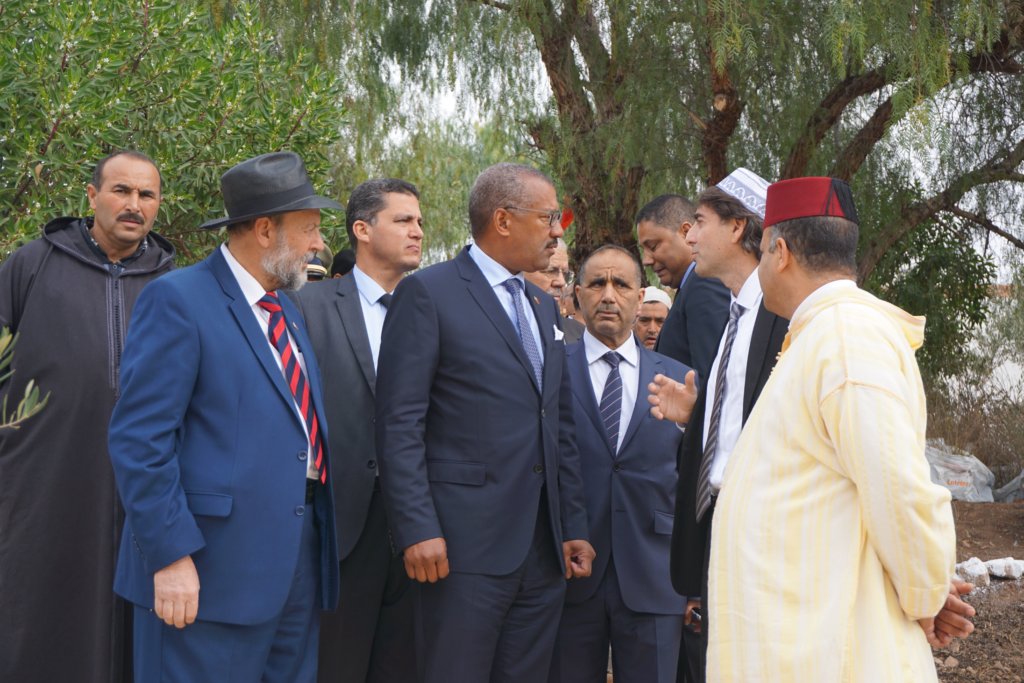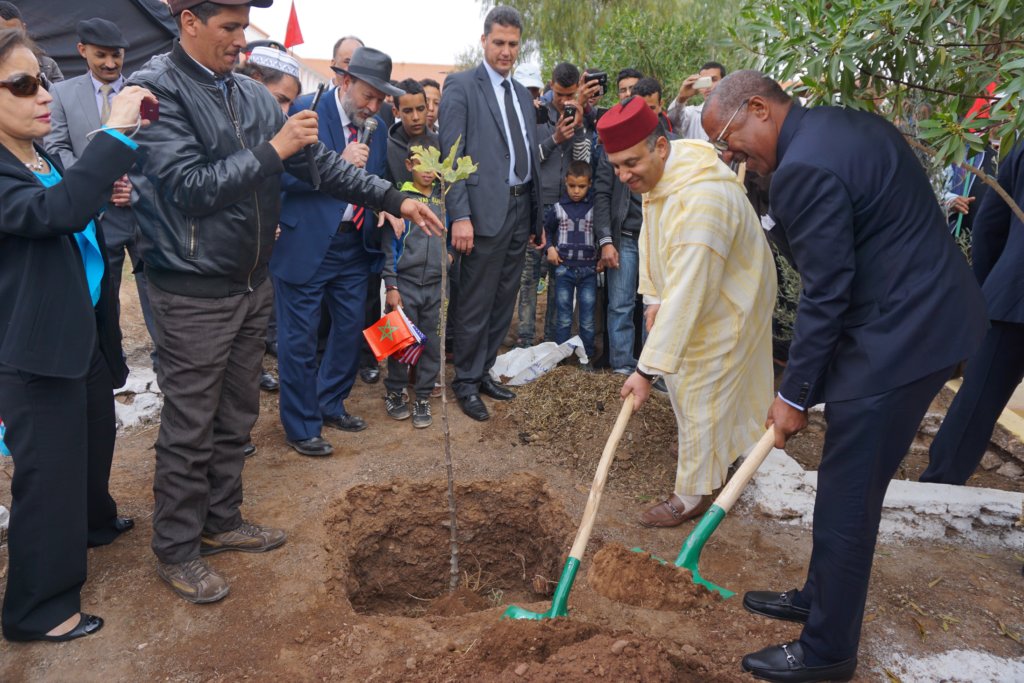By Yossef Ben-Meir | High Atlas Foundation president
What makes for a great development project? Which qualities imbue an initiative with longevity and sustainability, enabling it to meet a whole range of interconnected material and emotional needs? Is there a single concept applicable to a specific geographical location that - exceptionally – embodies those qualities?
Yes! Allow us to introduce what we term a Paradigm Project – shovel-ready, with the potential to be inaugurated in the Kingdom of Morocco. In this context, a particular dimension of sustainability is germane.
The fact is that the more partners there are to a well-managed community project, the longer the project life. A greater number of partners means a higher number of interests and goals likely to be met, with more interested parties and contributors, lower risk, greater adaptability and efficiency and a higher level of beneficiary knowledge and ability to reinvest.
The Paradigm Project in question is indeed a unique case, involving the Moroccan Jewish community playing an indispensable role in meeting Morocco’s need for one billion trees and plants and thus aiding in the dissolution of the harsh burdens of rural poverty. The initiative could inspire the world since it combines Muslim-Jewish collaboration with local-to-international and private-public partnerships.
The Paradigm Project’s multi-faceted nature and unique features have enabled it to meet the criteria for becoming a Clinton Global Initiative commitment to action.
Is it agricultural? Environmental? Multicultural? Does it empower women, youth and marginalized families? Does it advance democratic procedures, civil society and businesses? Does it increase domestic and foreign trade and jobs? Does the project invest in human development and address causes of rural poverty? Does it develop highly employable and nationally imperative skills? Does it further food security, carbon balance and Morocco’s goals?
Yes, to all of the above!
Origins
A full 23 years have passed from the project’s conception to the consensus for expansion of the resoundingly successful pilot. In the Ouarzazate region, is a barren, eroding mountainside with majestic, ancient white structures nestled at its base. This site houses the thousand-year-old tomb, one of hundreds of Moroccan tsaddikim – Jewish saints. Other structures have been provided to accommodate the hundreds of visitors arriving every year.
While farming families need desperately to grow fruit trees, as one of a series of measures necessary to end systemic rural poverty, they find it impossible to give up their existing land for two years in order to establish nurseries. The input of new land in the interim, before transplanting, is therefore vital in order to break the deadlock. The Jewish community of Morocco, with over six hundred rural sites, could be a potential partner in this enterprise.
The High Atlas Foundation (HAF), a U.S.-Moroccan nonprofit organization founded in 2000 with other former Peace Corps Volunteers, works with farming communities ‘from farm to fork’ - from the setting up of nurseries to the sale of certified organic product and carbon offsets.
Our model is to engage in partnerships with communities and utilize participatory methodology to determine and implement an initial project before utilizing revenue thus obtained to invest in students and schools, women’s cooperatives, drinking water, irrigation, and training - the priorities expressed by those communities.
The Government of Morocco has made the preservation of cemeteries of all faiths a matter of national importance and has established the connection between Moroccan multiculturalism and human development.
In 2014, the HAF pilot nursery on Jewish communal land was established at Akrich, located on the northern side of the High Atlas in Al Haouz province, around 25 kilometers south of Marrakech. Since that time we have planted 120,000 almond, fig, pomegranate, and lemon seeds which have reached maturity and now are maintained by about 1,000 farmers and 130 schools.
Making the Paradigm Project a reality
Were the Paradigm Project to be implemented, the first year would see the construction of 26 nursery terraces supported by stone taken from the surrounding, crumbling mountains. The new arable space created would encompass half a hectare (5,000 square meters), upon which would grow 300,000 one-meter tall organic trees of walnut, carob, fig, pomegranate, cherry and almond, as well as dozens of varieties of medicinal herbs. On maturity they would be given without charge to local associations, 5,000 farming families and 2,000 schools in provinces across Morocco. Together with our partners, HAF would monitor growth as part of carbon offsets sales, the revenue from which would be invested in further planting.
After four years, there would be more than one million trees and herbs grown from seeds and then transplanted to communal orchards and plots. As the plants mature, they would have an increasingly powerful social and environmental impact. Almost undoubtedly the project as a whole would initiative replication across the Moroccan Jewish community, providing hundreds of parcels of land adjacent to sacred sites throughout the kingdom. At scale, tens of millions of seeds would be planted every year and a better life afforded to all.
To bring the Paradigm Project to fruition, we need $300,000, which would cover the entire cost, including training communities in organic practices.
Every day we feel grateful to work for sustainable development in Morocco, where national frameworks enable the implementation of projects to national scale. Here is where the House of Life project, sits so naturally. Implementing the Paradigm Project as part of this initiative would make manifest those partnerships that seek the people’s prosperity, opinion and participation and, ultimately, the greatness of Morocco.
Project reports on GlobalGiving are posted directly to globalgiving.org by Project Leaders as they are completed, generally every 3-4 months. To protect the integrity of these documents, GlobalGiving does not alter them; therefore you may find some language or formatting issues.
If you donate to this project or have donated to this project, you can receive an email when this project posts a report. You can also subscribe for reports without donating.
Support this important cause by creating a personalized fundraising page.
Start a Fundraiser
